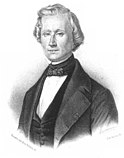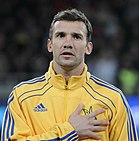From today's featured article

Ai-Khanoum is the archaeological site of a Hellenistic city in Takhar Province, Afghanistan. It was probably established in the early 3rd century BC by a monarch of the Seleucid Empire at the confluence of the Oxus and Kokcha rivers, controlling access to valuable mines and strategic choke points. Ai-Khanoum, which became a major centre of the Greco-Bactrian Kingdom after it seceded under the Diodotid dynasty, was redesigned by King Eucratides I to be an imperial capital, with a huge palace, religious structures, and massive defences. Nevertheless, it was sacked at the end of his reign (c. 145 BC) by the nomadic Saka and Yuezhi peoples, and the city was soon abandoned. Rediscovered two millennia later by the King of Afghanistan in 1961, Ai-Khanoum was excavated by a team of French archaeologists until the Saur Revolution in 1978. During the subsequent conflicts in Afghanistan, the site was extensively looted. (Full article...)
Did you know ...
- ... that one threatened species of plant (pictured) endemic to the North Island of New Zealand is colloquially known as a forget-me-not?
- ... that the parliamentary sign-language interpreter could not make out what South African MP Joan Fubbs tried to say in her tribute to President Cyril Ramaphosa?
- ... that Perry County is the least densely populated county in Tennessee?
- ... that Abdul Hamid al-Zahrawi, a former member of the General Assembly of the Ottoman Empire, was executed in 1916 for his support for Arab nationalism?
- ... that a section of Mississippi Highway 489 was designated as the Jason Boyd Memorial Highway to commemorate the MDOT superintendent who was killed while removing debris from the road?
- ... that in mediaeval England an area of special legal jurisdiction extended around the royal court and moved with it?
- ... that Paul Dini was a writer for both the animated television series Batman: The Animated Series and the video game series Batman: Arkham?
- ... that Romeo and Juliet both served in the Union Navy?
In the news
- Croatia changes its national currency from the kuna to the euro to enter the eurozone, and also joins Europe's passport-free Schengen Area.
- Pope Emeritus Benedict XVI (pictured) dies at the age of 95.
- Brazilian footballer Pelé dies at the age of 82.
- A winter storm causes record-breaking low temperatures and leaves more than 90 people dead across North America.
On this day
January 2: Feast day of Saint Gregory of Nazianzus and Saint Basil of Caesarea (Roman Rite Catholicism, Anglicanism)
- 533 – Mercurius, a Roman priest, was elected Pope John II; he was apparently the first pope to adopt a new name upon elevation to the papacy.
- 1680 – Trunajaya rebellion: Amangkurat II of Mataram of Java and his courtiers stabbed Trunajaya to death a week after the rebel leader surrendered to VOC forces.
- 1860 – French mathematician Urbain Le Verrier (pictured) announced the putative discovery of the planet Vulcan at a meeting at the French Academy of Sciences in Paris.
- 1944 – World War II: United States and Australian forces successfully landed in Papua New Guinea in an attempt to cut off a Japanese retreat.
- 1963 – Vietnam War: The Viet Cong won its first major victory at the Battle of Ap Bac.
- Lodomer (d. 1298)
- Tex Rickard (b. 1870)
- Dnyaneshwar Agashe (d. 2009)
From today's featured list
Ukrainian former professional footballer Andriy Shevchenko scored 48 goals in 111 appearances for the Ukraine national football team. He is the team's all-time top goalscorer, and the third most-capped Ukrainian international behind Anatoliy Tymoshchuk (144). He made his debut for his country in a 4–0 loss to Croatia in a UEFA Euro 1996 qualifying match in March 1995. He did not score his first goal until May 1996, however, when he scored in a friendly against Turkey. During the UEFA section of the 2002 FIFA World Cup qualifiers, Shevchenko scored nine goals in the qualifying group and captained the side to a second-place finish behind Poland. In the group stage of the 2006 FIFA World Cup, Ukraine's first as an independent nation, he scored one goal against Saudi Arabia in a 4–0 victory, and another goal against Tunisia in a 1–0 victory. He scored his final international goal in the 55th minute of a UEFA Euro 2012 group stage match against Sweden, which ended as a 2–1 victory for Ukraine. (Full list...)
Today's featured picture
|
A pressurized water reactor is a type of nuclear reactor used to generate nuclear power. It works by placing nuclear fuel in a reactor pressure vessel, which is then engaged in a controlled fission chain reaction, producing heat. This heats water in the primary coolant loop by thermal conduction through the fuel cladding. The hot primary coolant is pumped into a heat exchanger called the steam generator, where it flows through several thousand small tubes. Heat is transferred through the walls of these tubes to the secondary coolant which evaporates to pressurized steam. This transfer of heat is accomplished without mixing the two fluids. This digital animation was produced by the Tennessee Valley Authority, a federally owned electric utility corporation in the United States, and narrates the operation of a pressurized water reactor. Animation credit: Tennessee Valley Authority
Recently featured:
|
Other areas of Wikipedia
- Community portal – The central hub for editors, with resources, links, tasks, and announcements.
- Village pump – Forum for discussions about Wikipedia itself, including policies and technical issues.
- Site news – Sources of news about Wikipedia and the broader Wikimedia movement.
- Teahouse – Ask basic questions about using or editing Wikipedia.
- Help desk – Ask questions about using or editing Wikipedia.
- Reference desk – Ask research questions about encyclopedic topics.
- Content portals – A unique way to navigate the encyclopedia.
Wikipedia's sister projects
Wikipedia is written by volunteer editors and hosted by the Wikimedia Foundation, a non-profit organization that also hosts a range of other volunteer projects:
-
Commons
Free media repository -
MediaWiki
Wiki software development -
Meta-Wiki
Wikimedia project coordination -
Wikibooks
Free textbooks and manuals -
Wikidata
Free knowledge base -
Wikinews
Free-content news -
Wikiquote
Collection of quotations -
Wikisource
Free-content library -
Wikispecies
Directory of species -
Wikiversity
Free learning tools -
Wikivoyage
Free travel guide -
Wiktionary
Dictionary and thesaurus
Wikipedia languages
This Wikipedia is written in English. Many other Wikipedias are available; some of the largest are listed below.
-
1,000,000+ articles
-
250,000+ articles
-
50,000+ articles



